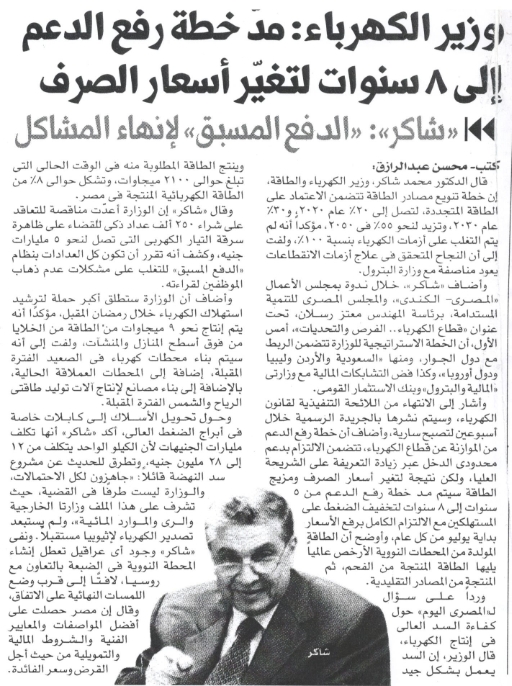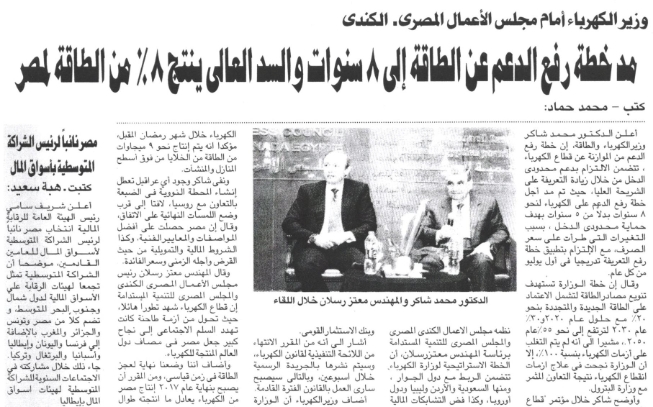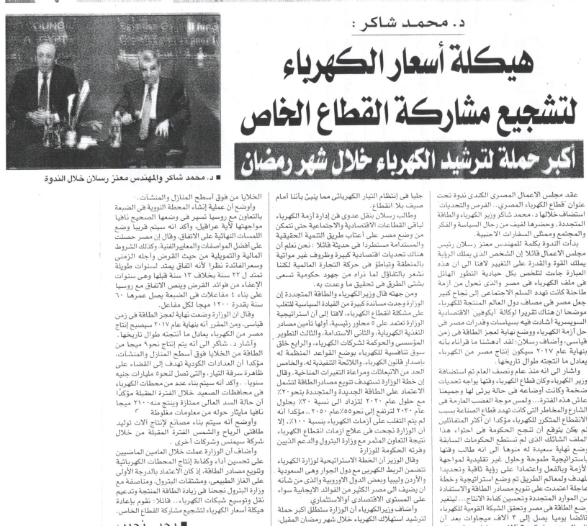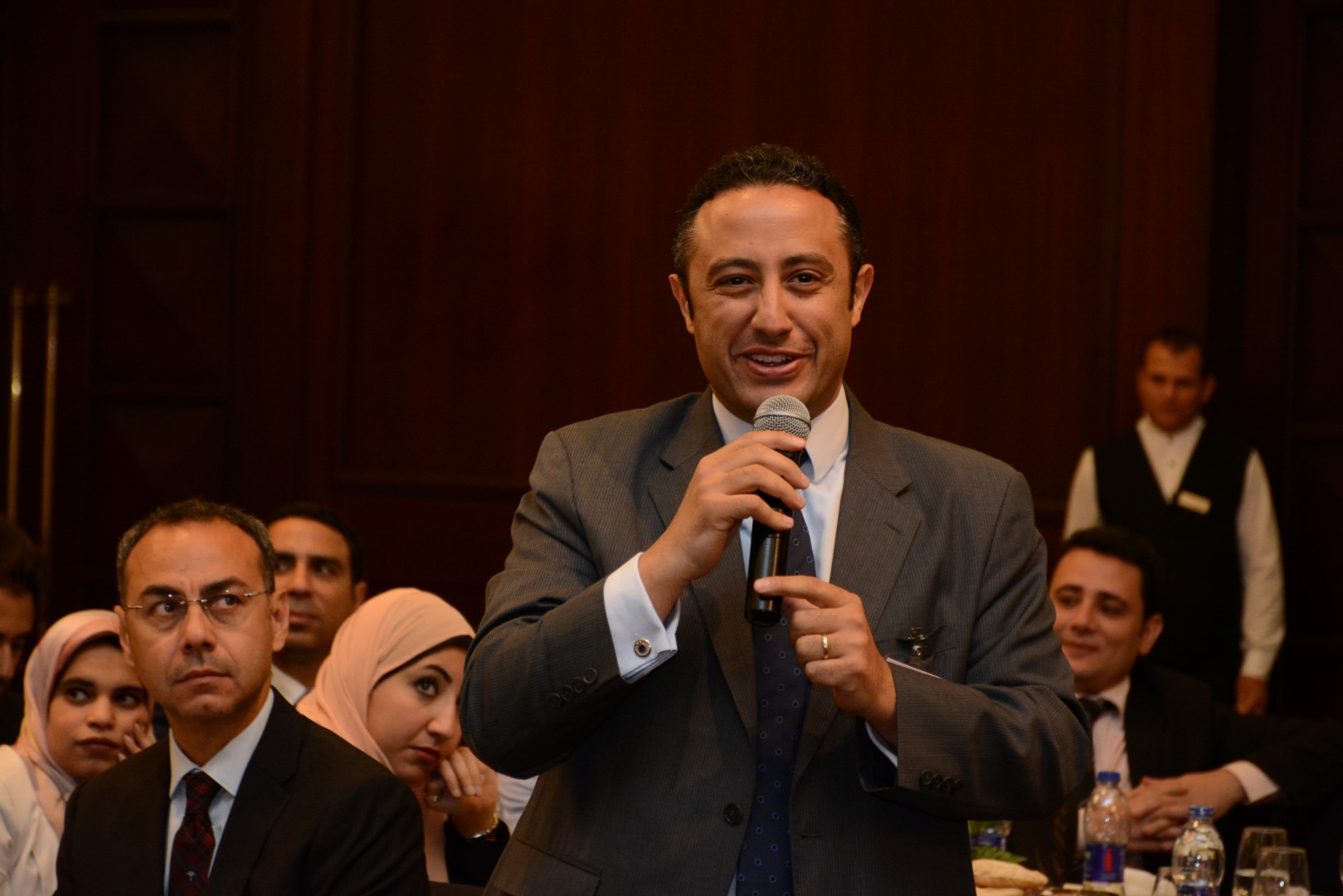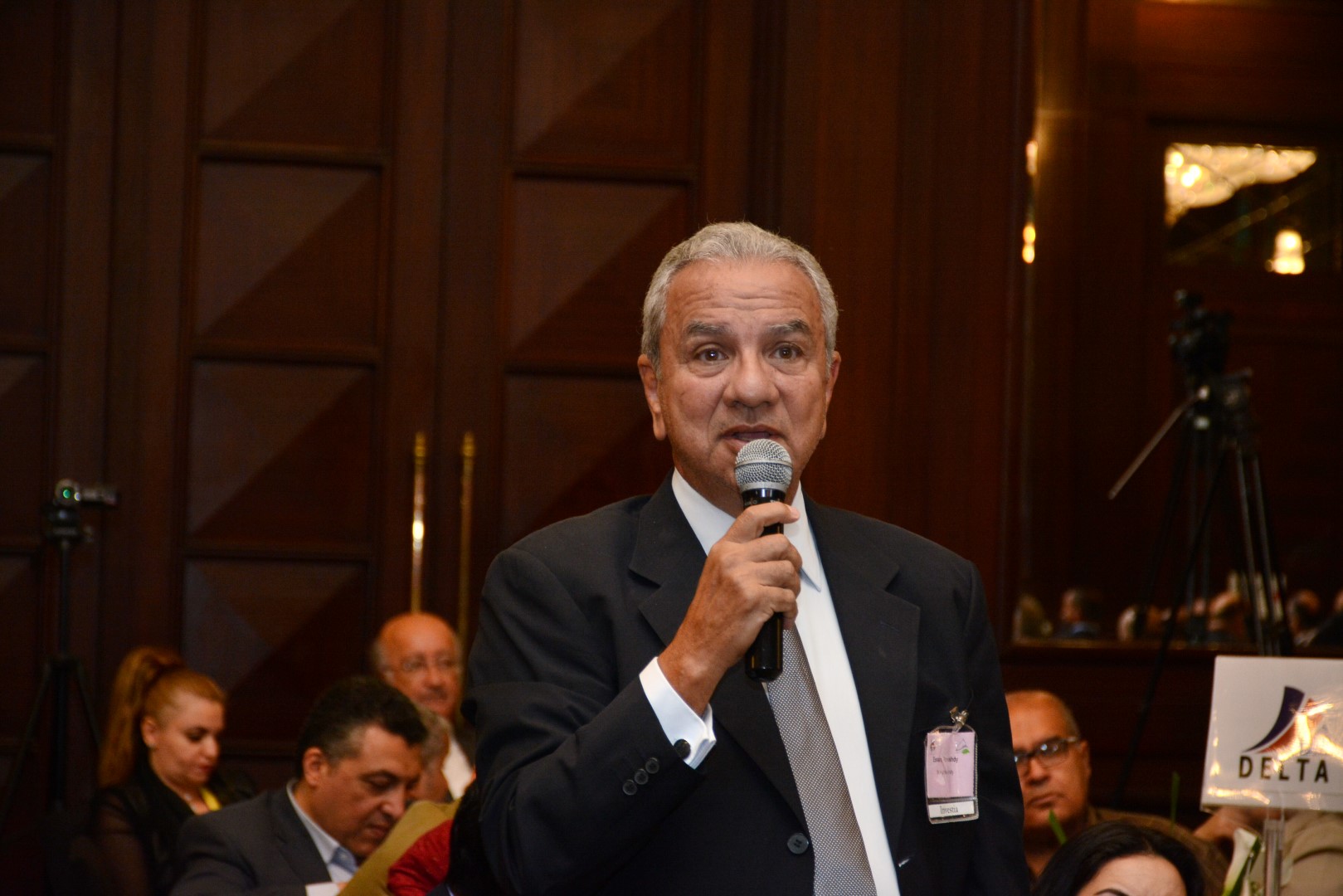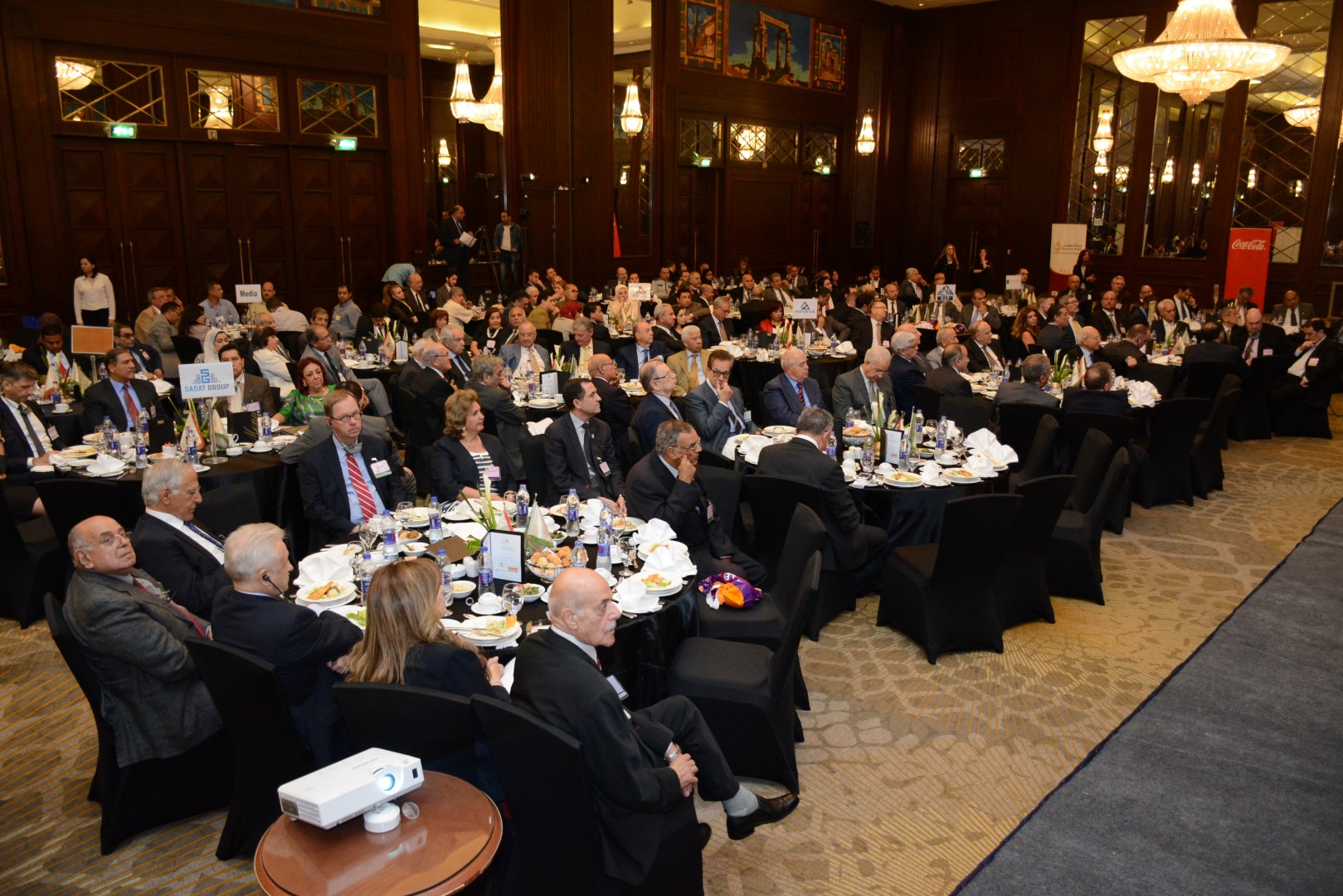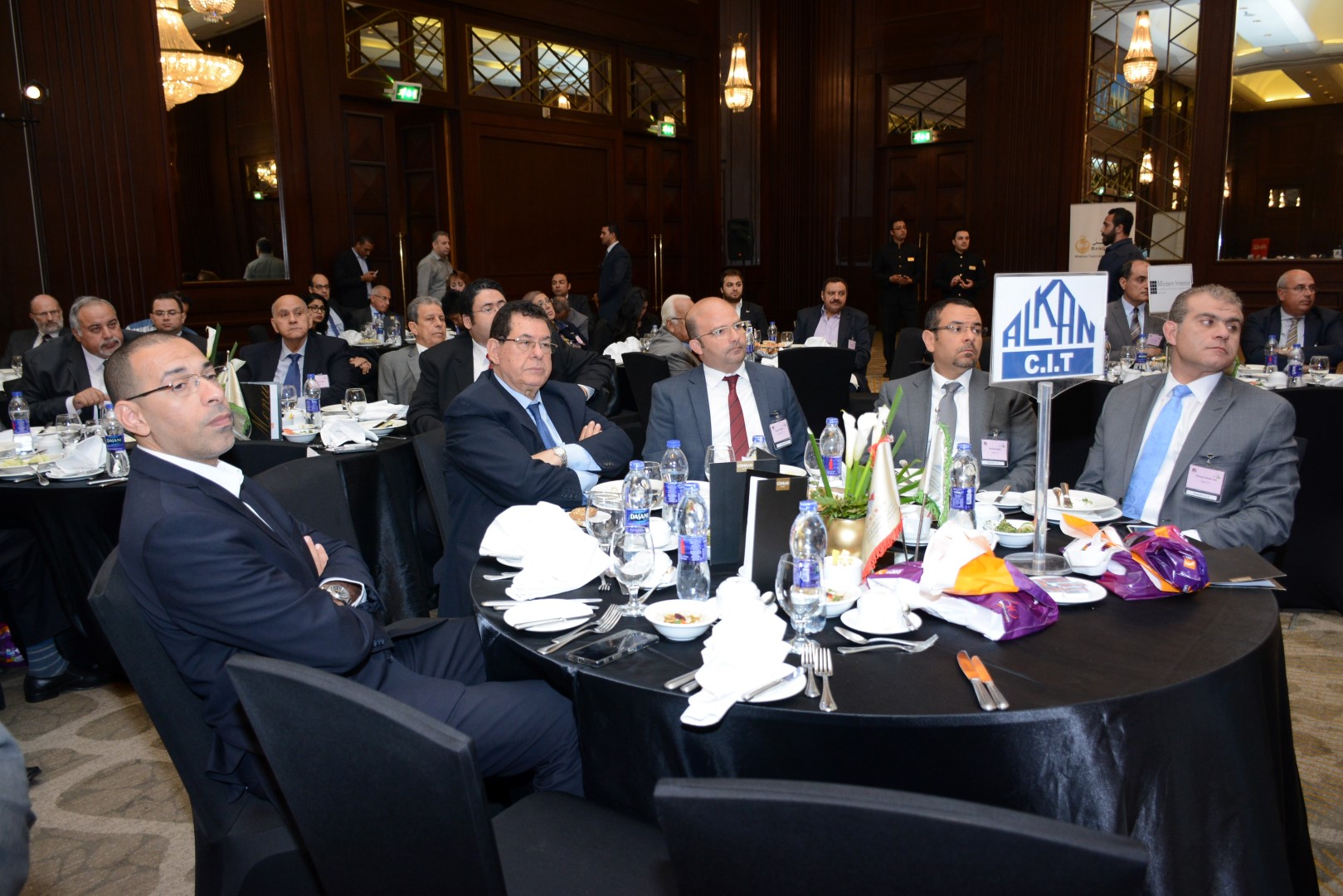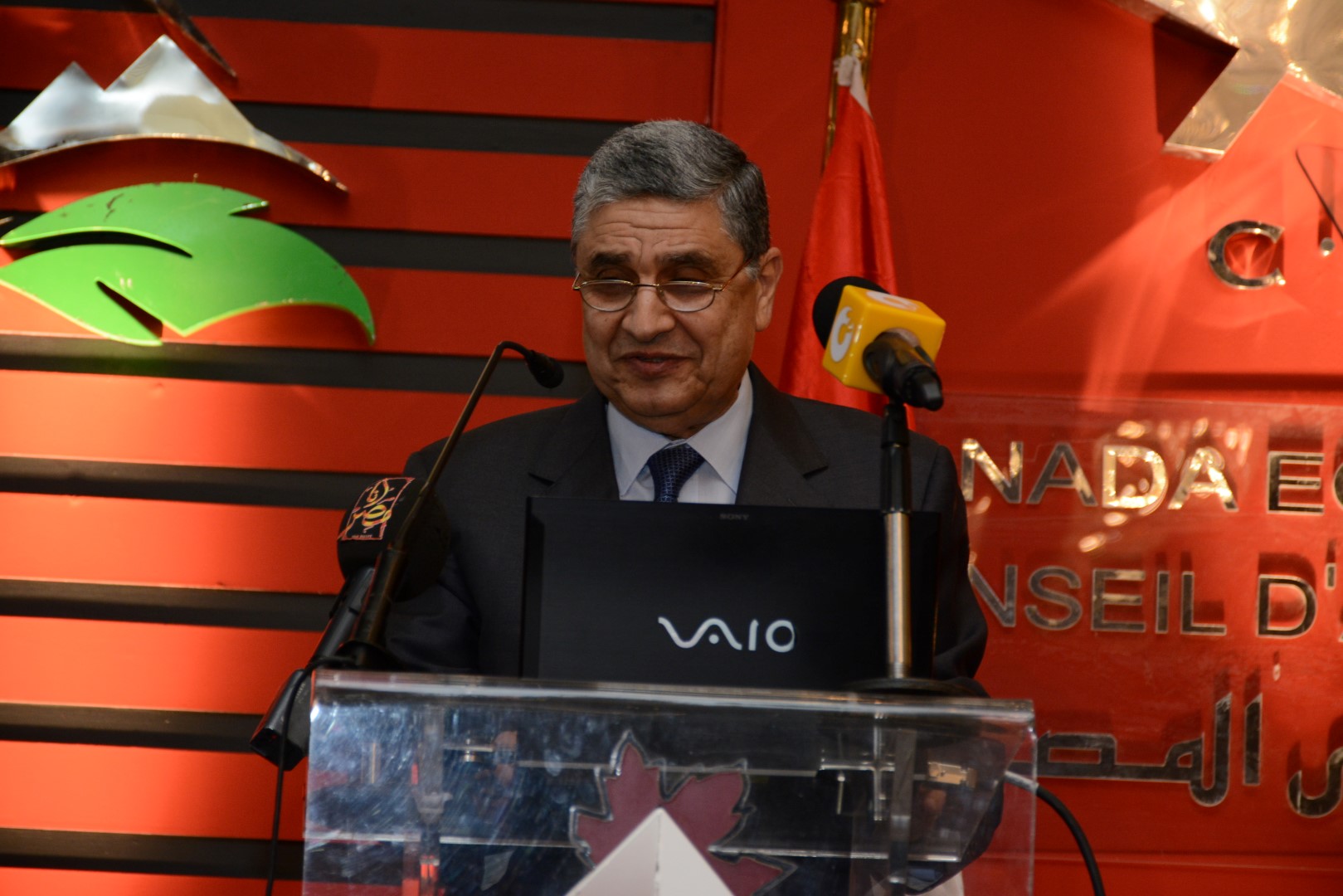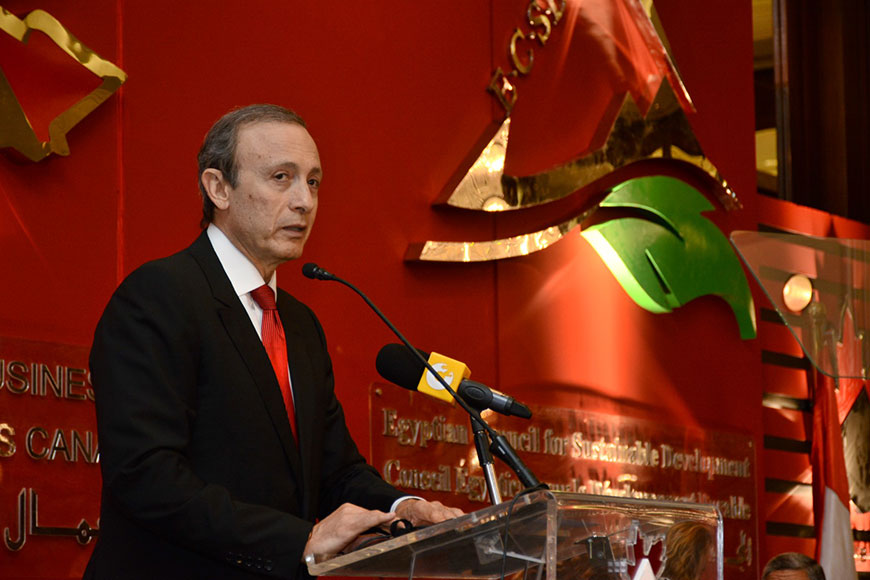
Date
Speaker(s)
Description
To address the current state and future plans of the Egyptian energy sector, the Canada Egypt Business Council (CEBC) and the Egyptian Council for Sustainable Development (ECSD) hosted a discussion featuring H.E. Dr. Mohamed Shaker Minister of Electricity and Renewable Energy. Esteemed guests, ministers ambassadors and members of the council attended the event. They included H.E. Amre Moussa, Dr. Ali El Saaidy, Eng. Alaa Fahmy, Dr.Amr Ezzat Salama, Dr. Mostafa El Saeed, and Dr.Laila Iskandar. The ambassadors of Albania, Armenia, Belarus, Bulgaria, Cuba, Cyprus, Chile, Lithuania, Norway, Portugal, Russia, Slovakia, and Serbia were also in attendance. They were joined by CEBC and ECSD’s esteemed members, guests, businessmen and reporters.
In his opening remarks Eng. Motaz Raslan observed that the energy crisis manifested in recurrent power outages that has been marring Egypt during the past few years, has almost come to an end. Angering the majority of the population, and affecting businesses with negative repercussions on the economy, people from all walks of life were negatively impacted by the crisis that peaked in the year 2014. Raslan commended the ministry for solving the crisis in record time. “Even optimists didn’t except to see such rapid solutions to end the crisis”, he said. However the ministry was able to put a strategic plan in place and turn it into action. To highlight the progress of the ministry, Raslan stated that by the end of the year 2017, Egypt’s production of electricity would equal what it has been produced in all its history.Currently, the national eclectic network produces a daily surplus that reaches 3,000 megawatts while during the crisis a deficit reaching 6,000 megawatts existed.
Minister Shaker assumed the floor following Raslan and explained to the audience the latest plans and developments of the ministry for Egypt’s energy crisis. The main strategy of the energy sector revolves around major points. The first is securing the locations of energy production and increasing its efficiently. Diversifying energy resources is also a key point going forward. In 2014, Egypt relied heavily on natural gas, which is one of the major contributing reasons to the energy crisis back then. There are current plans to support and further improve the networksfor transfer and distribution of electricity with an estimated cost of 16 billion EGP.
There are currently three electrical plants under construction in cooperation with the company Siemens. Each plant is set to produce 4,800 megawatts. By the end of 2016 4,400 megawatts can be utilized and 8,800 megawatts by the end of 2017. In May 2018, the plants are set to reach full capacity with 14,400 megawatts. To put it in perspective, minister Shaker highlighted that this number is half the current load of Egypt, and that all this will be achieved in a short span of two and a half years.
The minister pointed that it isn’t enough to just increase the megawatt capacity of the networks. This has to go hand in hand with decreasing consumption by efficiently using energy. The ministry has been encouraging the use of LED bulbs by distributing them into people’s homes. They have also recently replaced a million street lights out of Egypt’s 3.7 million from regular bulbs to energy saving LED bulbs. In addition, the new smart electronic meters are set to roll out to homes soon with 250,000 to be installed as a pilot project. They will also act to save precious megawatts.
Creating a competitive market for the energy sector and setting up its governing rules is one of the things on top of the ministry’s agenda. By promoting competition in the market, businesses are enticed to invest in the energy sector, and also relieving some of the burden off the government. The ministry is also looking to follow the rest of the world in heading towards renewable energy, thereby reducing emissions and sustaining the environment. Egypt has already taken a few first steps and it is planned that the country should generate 20 percent of its energy from renewable resources in 2022 and 55 percent by the year 2050.
Minister Shaker moved on to address one of the most talked about topic in the energy sector of late-nuclear power plants. He announced that the government is building four nuclear power plants, each one with a capacity of 1,200 megawatts. Constructed in cooperation with a Russian company, the minister assured audiences that the highest safety procedures are being carried out in these plants. The floor was then opened for a questions session where a wide range of important topics were raised such as the power outages in governorates in Egypt, and financing of the nuclear plants.


